To seize power in Spain, Queen Isabella had to play it smart
Bold, strategic, and steady, Isabella of Castile navigated an unlikely rise to the throne and ushered in a golden age for Spain.

Isabella of Castile should never have been queen. Born on April 22, 1451, she was the second child of King John II of Castile. The king already had an heir, Henry, a 26-year-old son from his first marriage, making him Isabella’s half brother. The king’s second wife, Isabella of Portugal, would deliver a son, Alfonso, two years later, making Isabella third in line.
Her sex and her birth order should have kept her from the throne, but Isabella was a woman who defied the odds. Tough, determined, and iron-willed, Queen Isabella of Castile deftly maneuvered dynastic feuds and political rivalries. Together with her husband Ferdinand II of Aragon, she politically and religiously united Spain, routed the last Muslim stronghold in western Europe, and launched the age of exploration by backing Christopher Columbus. His voyages would lay the foundation for what would become the Spanish Empire. At the height of her power, one European observed, “This queen of Spain, called Isabella, has had no equal on this earth for 500 years.” (See also: Should women rule the world? Queens of ancient Egypt say yes.)

A kingdom divided
When Isabella was born, Spain was not united. Instead, it was fractured into several small kingdoms. Her father, John II, ruled Castile. Meaning “land of castles,” Castile had once been a small Christian power in northern Spain in the 10th century. As the centuries passed, it grew larger, gradually expanding south as Spain’s Muslim rulers, the “Moors,” were weakening.
Iberia’s other Christian kingdoms were Aragon to the east, Navarre to the north, and Portugal to the west. These three other territories had their own royal families, who were deeply interrelated and constantly quarrelling over questions of succession. In negotiating these disputes, Isabella would prove to be as cunning as her older brother Henry was inept. (See also: Meet the 'difficult' women who wrote their own rules.)
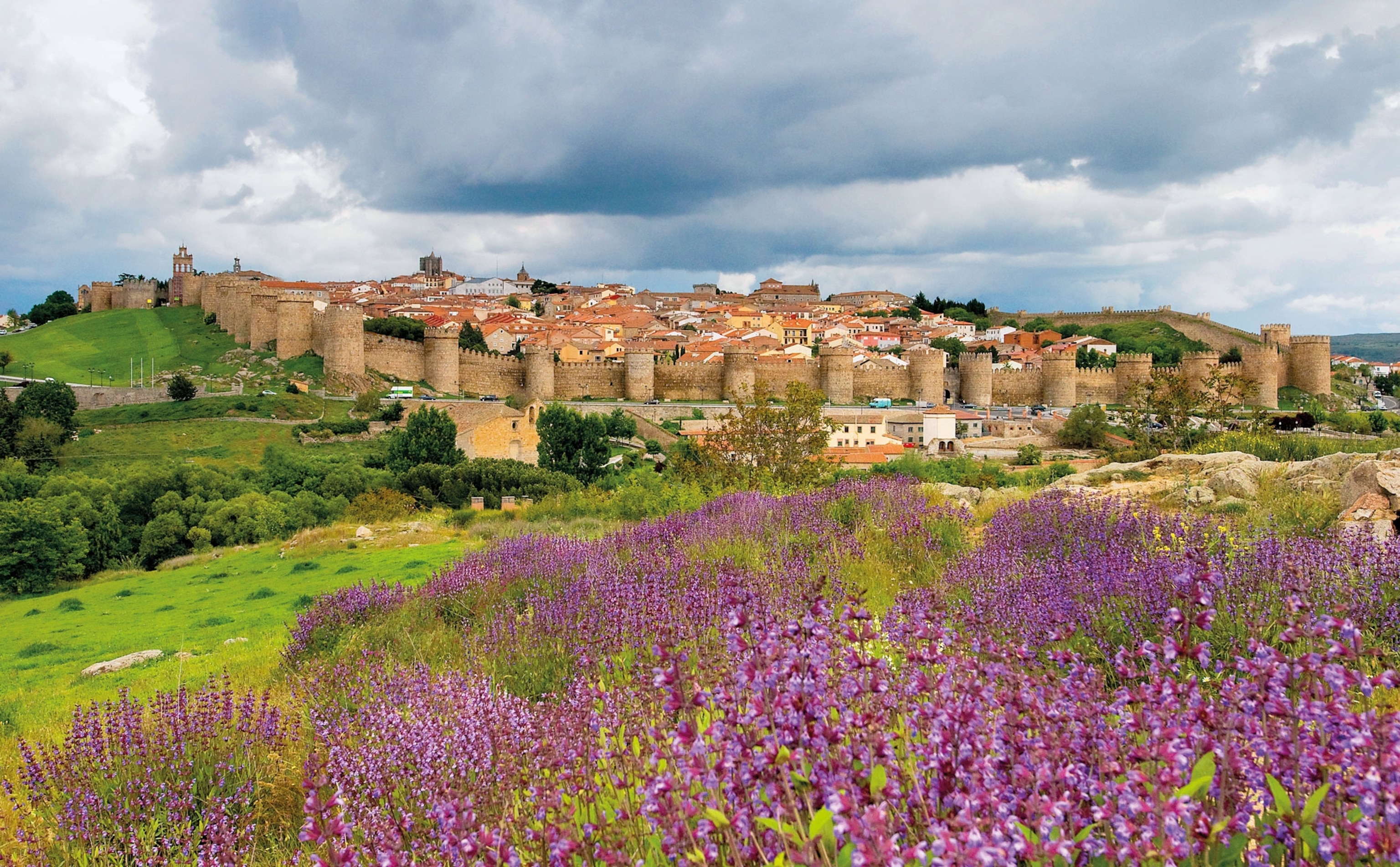
John II died in 1454, and Henry became king of Castile, ruling from the city of Segovia. He sent Isabella, her brother Alfonso, and their mother far away from court to Arévalo. Isabella was nevertheless given an education fit for a princess, and she was surrounded by a select group of ladies-in-waiting and tutors appointed by her father before he died. From them she received a substantial education of rhetoric, painting, philosophy, and history.
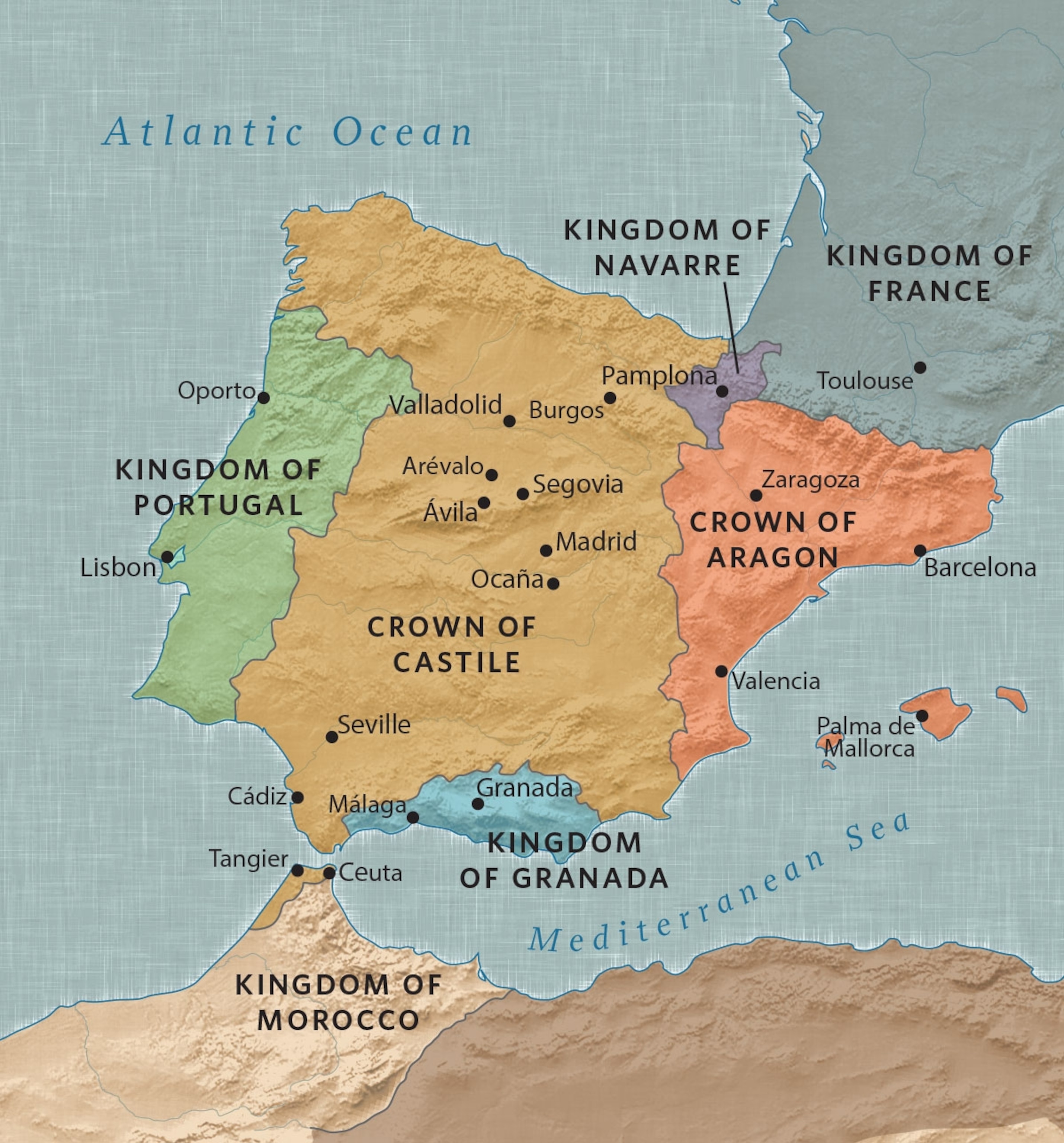
Struggling as king, Henry was unable to provide an heir. His childless first marriage was annulled, but not without having had his sexual prowess (or lack thereof) exposed before an ecclesiastic tribunal. His inability to plant the royal seed became a vexing political issue, giving him the moniker that would accompany him into history books: Henry the Impotent.
Henry married again in 1455, this time to the daughter of the king of Portugal. In 1462 she gave birth to a daughter, Joanna, but rumors about the girl’s true paternity began to swirl. Some believed that Henry was not her biological father, and that the likeliest candidate was one of the king’s—and possibly the queen’s—favorites. Whether true or not, the courtly gossip only further undermined both Joanna’s legitimacy and Henry’s power.
Shortly before Joanna’s birth, Henry summoned Isabella and Alfonso to Segovia to have more supervision and control over possible rivals to the throne. Their mother remained in Arévalo; Isabella would later describe how she was “inhumanely . . . torn from our mother’s arms.” She hated living at court and considered Henry’s wife to be cruel and abusive.
The Queen's Artist
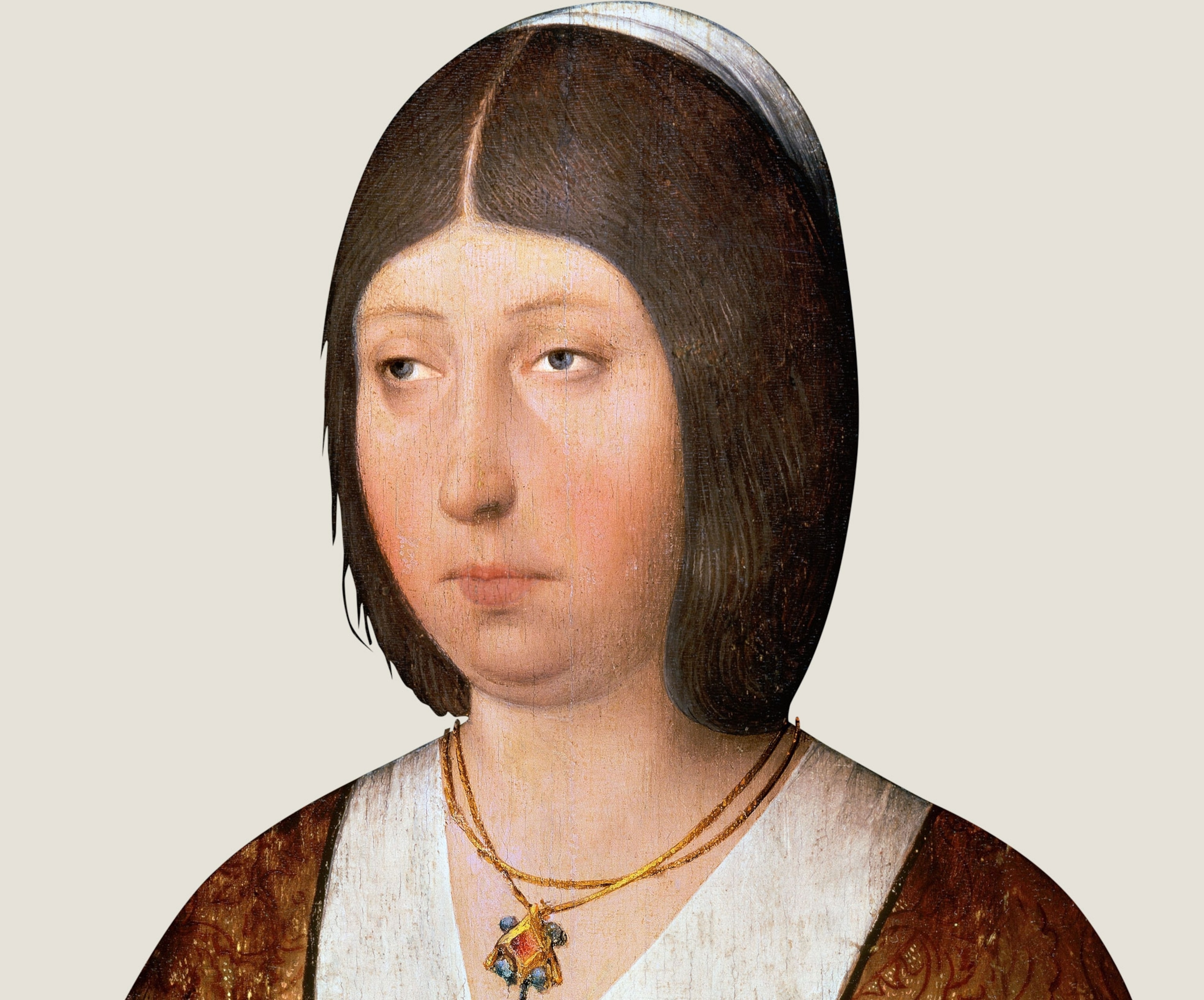
Painters were often charged with creating portraits of kings and queens to show them at their best. These works tended to be idealized, depicting the monarchs as dashing heroes or great beauties. Isabella’s court artist, John of Flanders (also known as Juan de Flandes), chose to emphasize different qualities in his subjects. His portraits of the queen downplay Isabella’s golden hair, blue eyes, and fair skin. As shown in the painting above, John of Flanders depicts her as well-dressed and austere. Her hair is arranged simply, and her expression is calm and steady. Isabella and the artist have forgone beauty to call out the qualities of a strong 15th-century leader: regality, piety, and reserve.
Henry officially named his infant daughter Joanna heir to the throne of Castile. A powerful group of nobles used the rumors of Joanna’s parentage to protest it. They backed Alfonso over Joanna as the true heir. In a risky move Isabella sided with her younger brother. Her daring paid off, for Henry relented; he named Alfonso his heir as long as Joanna were betrothed to him so that both would share the crown.
But Henry would later attempt to back out of this arrangement, and civil war erupted. The rebels crowned the young Alfonso king, but his “rule” never gained legitimacy. He died three years later, in 1468, and left Isabella as his heir. Some of the kingdom’s barons were more than willing to rally around Isabella’s claim.
Her more impetuous advisers urged Isabella to seize power without waiting for Henry to die. But the princess, though still a teenager, demonstrated keen political savvy. Presenting herself as a guarantor of the established order, she would quietly wait her turn while negotiating a stronger position for herself. Patience paid off; Henry signed an agreement in 1468 in which he recognized his half sister as his legitimate successor. As part of the deal, she would not have to marry against her will, a distinct improvement over tradition. Isabella had the position she sought on her terms and would become queen after her older brother’s death.
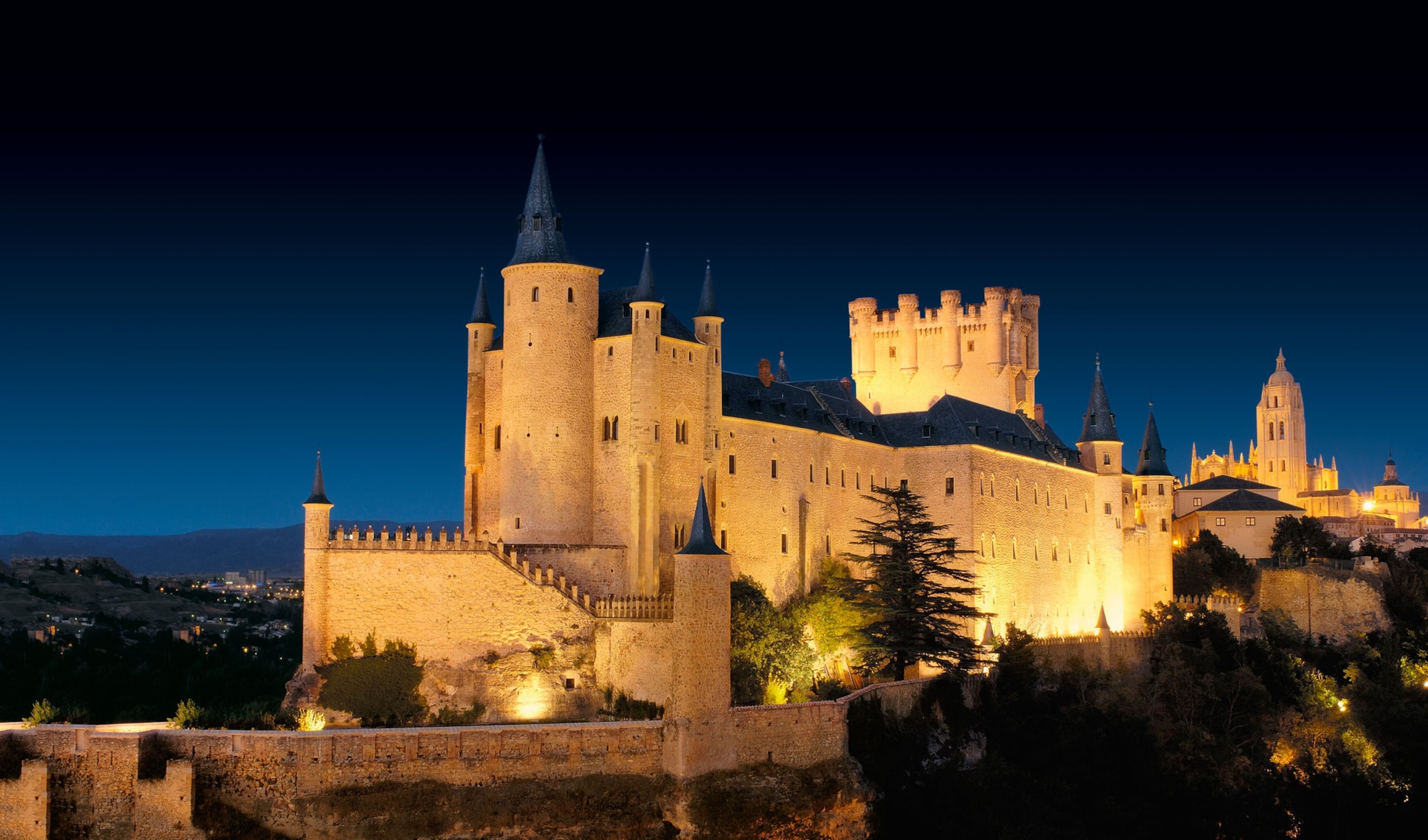
A mate selected
Isabella knew when to be patient and when to make a bold move, skills that served her well as she carefully navigated choosing a husband. Few detailed descriptions of the young Isabella exist, but chroniclers agree she had fair skin, blue eyes, and dark blonde hair, inherited from her English grandmother, Catherine of Lancaster. Isabella was sure to be courted, if not for her looks, then for her lands and her title.
As part of being Henry’s heir, Isabella agreed to inform the king of any marriage proposals before a match was made. Marriage in the 15th century was a political tool, creating alliances between kingdoms. Henry and his backers wanted Isabella to marry King Afonso V of Portugal to unite the two kingdoms. Afonso was a widower and nearly 20 years older than Isabella. Rather than blindly submit to her brother’s wishes, Isabella quietly decided to consider other suitors, ones more to her liking.
One of the leading candidates was Ferdinand, son of John II of Aragon. He was just a year younger than Isabella. In 1461 his father named Ferdinand heir to Aragon and the other lands under his control. Battle-tested Ferdinand appealed to Isabella. It would be smart to ally with Aragon, she decided, which was keen to unite with Castile to form a vast kingdom in Iberia. Throughout 1468 Isabella continued to be coy toward the Portuguese overtures, never outright rejecting marriage to its king, while she secretly entertained envoys from Aragon and discussed different marriage possibilities. By January 1469 she had made her choice, and it was Ferdinand.
Rather than blindly submit to the wishes of her brother the king, Isabella quietly decided to consider other suitors, ones more to her liking.
Some historians have claimed that Isabella fell for Ferdinand’s dashing reputation, that his youth and machismo tipped the scales. While this is a romantic story, it is more likely that Isabella was following her head and not her heart when she chose her mate. She suspected that once married to Afonso V, she would be forced to forfeit her power and become little more than a consort. With Ferdinand, she could craft a better deal to maintain her power even though she would be openly rebelling against her brother.
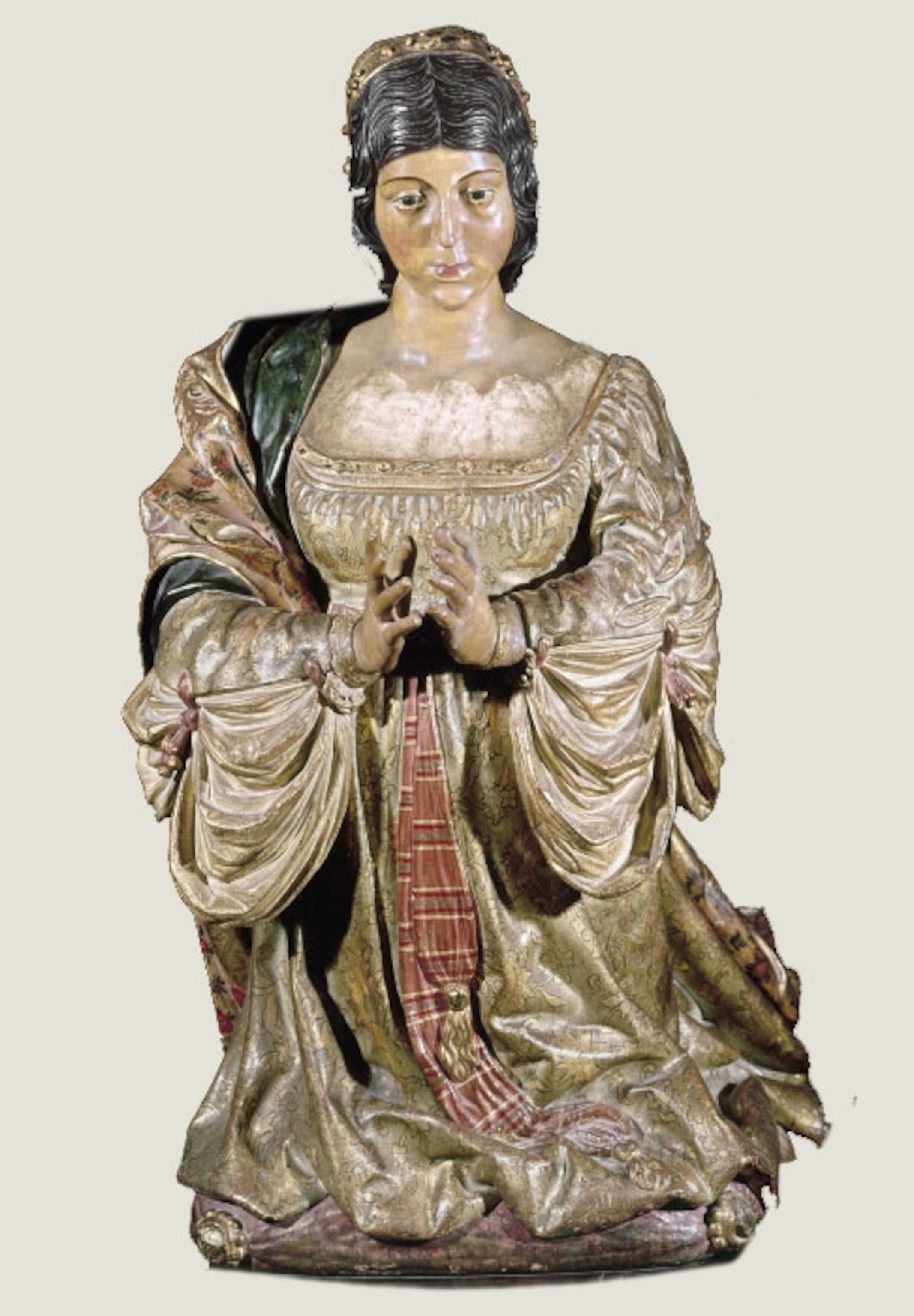
Marriage preparations were carried out in the utmost secrecy. According to their negotiations, Ferdinand could administer justice in Castile, but Isabella would retain power as queen over every other domain. Ferdinand could not even leave Castile without her permission. The engagement remained secret, but Isabella had to make a public demonstration of her loyalty to Aragon to seal the deal. She did so by leaving Ocaña, the town where Henry had placed her under the careful watch of his supporters. Without her brother’s consent, she traveled to Madrigal de las Altas Torres, her birthplace, and from there to Valladolid in northern Castile, where the pair would marry.
In September 1469 Ferdinand set out from Aragon to join Isabella. Disguised as a servant, he rode in a small party of six to avoid attracting unwanted attention. Two days after Ferdinand’s arrival, the couple met for the very first time. Four days later, Isabella and Ferdinand were wed. The marriage was duly consummated on the following day, in a nuptial chamber shared with a select group of witnesses. Official chroniclers presented their meeting as love at first sight, but both partners had a shared political interest in the marriage and practical reasons for making it work.
Many of Spain’s noble families were closely related, which had led to power struggles in the past. In this case, Ferdinand and Isabella were second cousins. According to canon law, they required papal authorization to get married. Concerned by the consequences the marriage could have for the territories of Castile and Aragon, Pope Paul II refused to grant it. (See also: This Renaissance warrior woman defied powerful popes to defend her lands.)
Tough As Nails
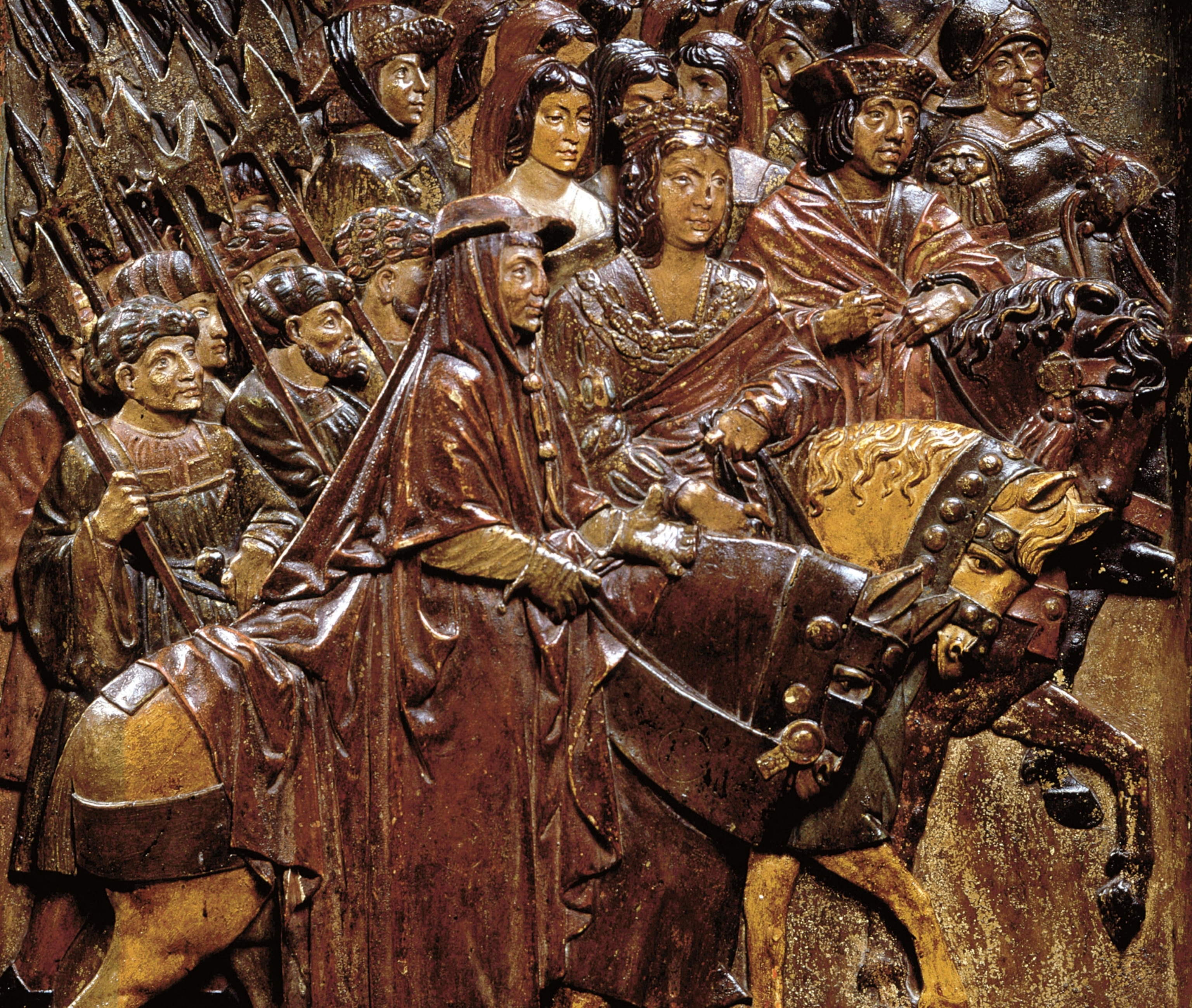
In Isabella's time, the Spanish people associated masculinity with authority and power, a custom that shaped Isabella's life from the start. On announcing her birth, her father proclaimed that he was father to “a princely daughter.” When Isabella became queen, her propaganda touted her qualities of strength, stoicism, and toughness. “She is strong, more than the strongest man,” the Italian courtier and scholar Pietro Martire d’Anghiera said of her. Another chronicler, Lucio Marineo Siculo, wrote, “according to the ladies who served her . . . they never saw her complain about pain, even the pain of childbirth.”
When the wedding took place in October 1469, the archbishop of Toledo had presented a forged papal bull, of which the couple were no doubt aware. They repeatedly requested dispensation from Rome but did not obtain it until December. So the woman who ended up receiving the title of “Catholic Queen,” in fact married in defiance of church law. By the time she was pardoned, she had already given birth to her first child—a daughter, also named Isabella—in 1470.
A nation united
Henry was furious when he received news of the marriage. He rightly regarded Isabella as having infringed their pact and immediately decided to cancel her right of succession and return it to his daughter, Joanna. Isabella was not surprised by his reaction and might have even welcomed it. She never forgave Henry for cruelly separating her from her mother all those years ago; however, she did not directly challenge her brother for the throne while he lived. Instead, Isabella kept a cool head and bided her time.
One freezing December morning in 1474, news of Henry’s death reached Isabella and Ferdinand. The following day Isabella solemnly proclaimed herself queen of Castile and demanded obedience from the main cities of the kingdom. Weeks later Joanna also proclaimed herself queen. She forged an alliance with Portugal by agreeing to marry her uncle (and Isabella’s former suitor), King Afonso V.
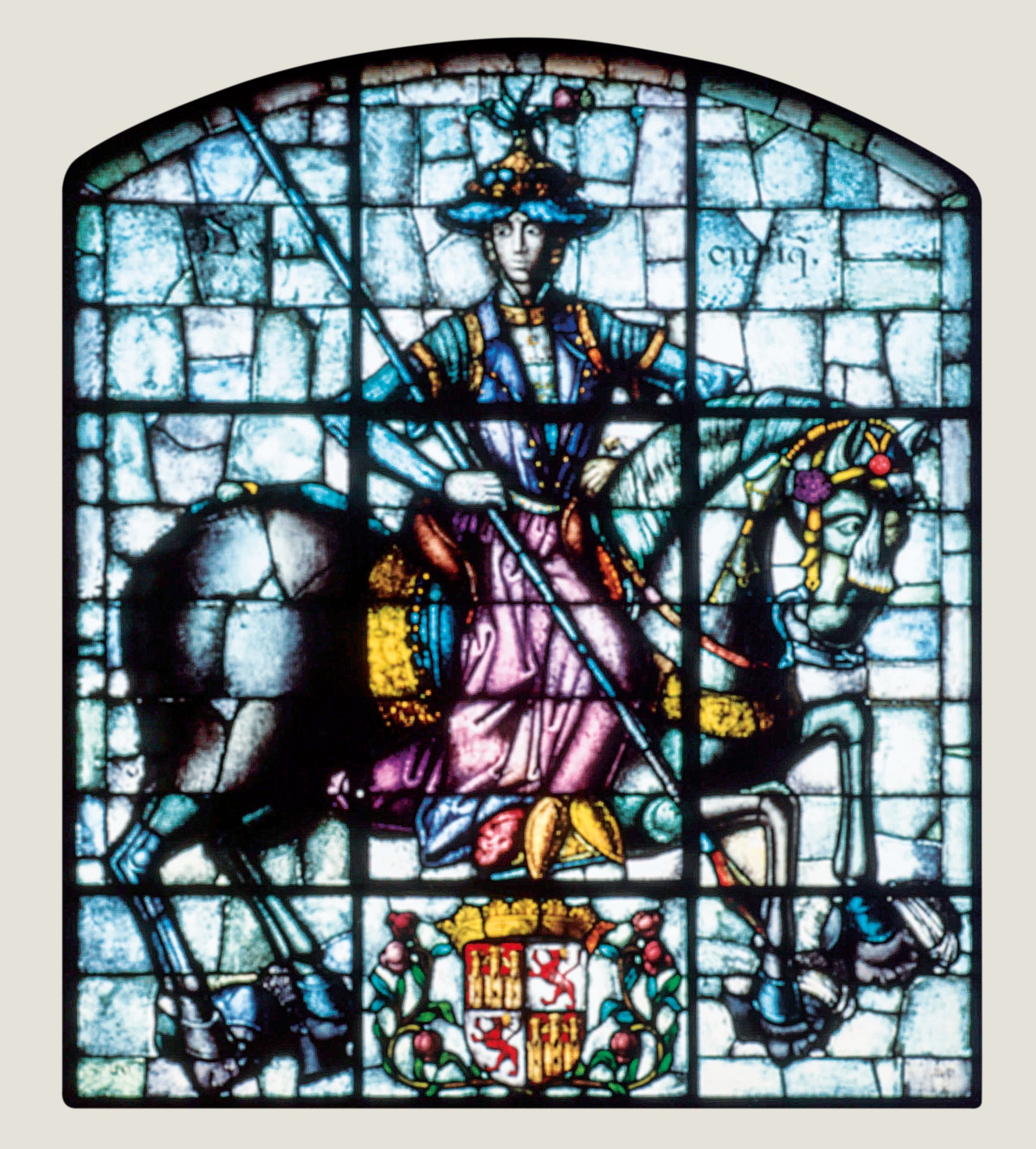
Isabella would spend the first four years of her reign fighting a bloody civil war against Joanna and Portugal for the Castilian throne. It was during this conflict that her marriage to Ferdinand began to change. When they were engaged, Isabella held the political power, but war would place the couple on more even ground. With a common goal to unite them, they needed to trust in the other’s loyalty and skills as each traveled separately to build armies and forge alliances. Over time the marriage strengthened and grew into one of mutual respect.
This partnership served them well, and by 1479 the two had defeated Joanna and Afonso. Isabella’s grip on the throne of Castile was now secure. The victorious queen gave her niece a choice: be pledged to marry Isabella’s one-year-old son John, or enter a convent in Portugal. Joanna chose the nunnery. When Ferdinand’s father died later that year, Ferdinand became king of Aragon. The two kingdoms would be united, laying the groundwork for a united Spain in years to come.

Legacy of a queen
Isabella’s rise to power set the stage for a dramatic era in Spanish history, filled with turbulent highs and lows. She and Ferdinand completed the Reconquista, the centuries-long movement to end Muslim rule in Iberia. Granada, the last Muslim stronghold, fell in January 1492, and Iberia returned to full Christian control. Later that year in October, Isabella’s decision to back Christopher Columbus unexpectedly paid off when he made landfall in the Caribbean. This expedition would lay the foundations for the Spanish Empire in the New World, making Spain a dominant player on the world stage. (See the 500-year-old map used by Columbus.)
Isabella’s reign had its darker side too. The Spanish Inquisition began under her rule around 1480, persecuting Muslims and Jews who would not convert to Catholicism. In 1492 Isabella and Ferdinand ordered Spain’s Jewish community to convert or be expelled. The Catholic Monarchs ventured down a dark path to unity through the terror and pain of others, a move that still casts dark shadows over Spanish history.
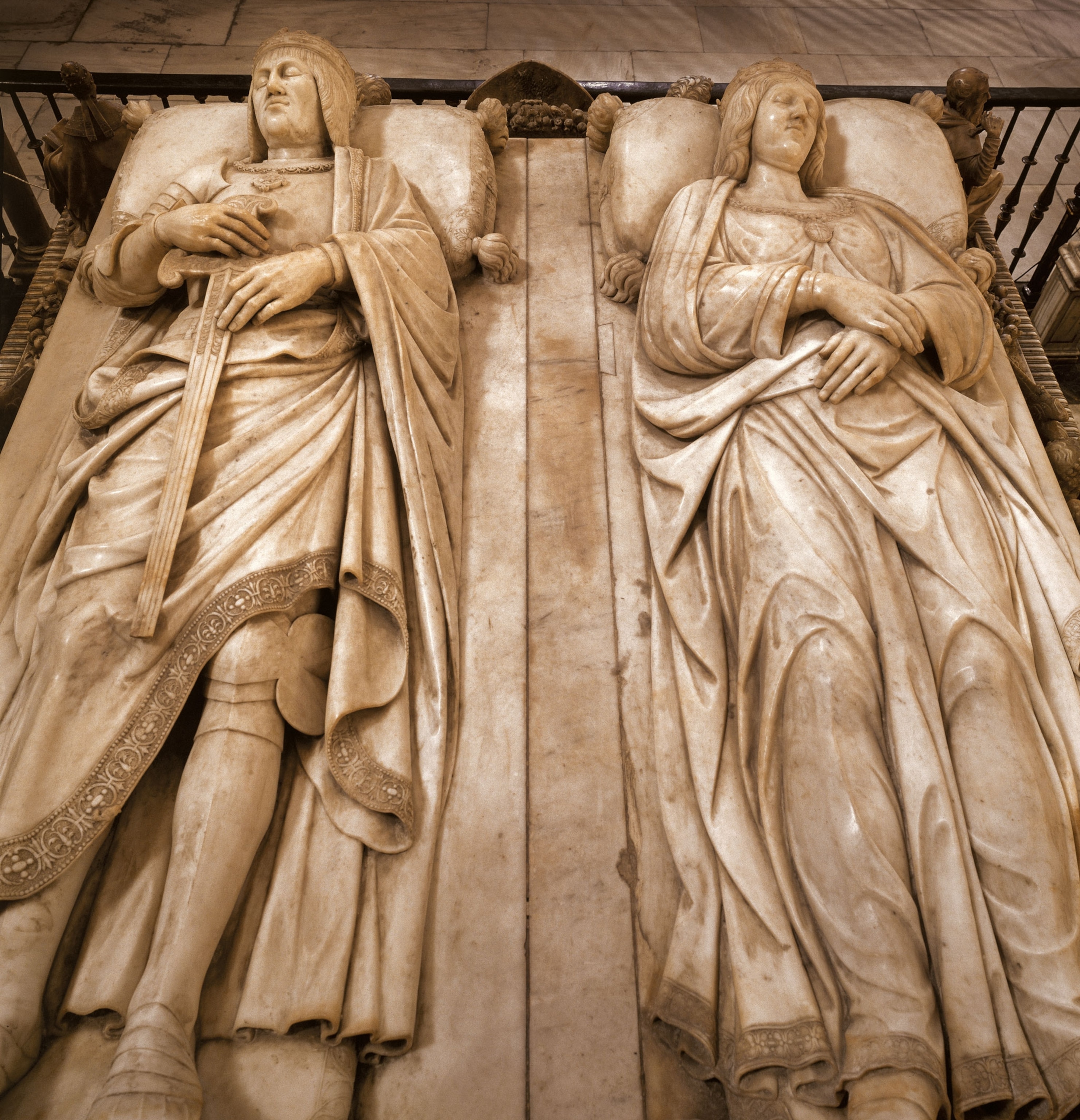
After 35 years of marriage, the union of Isabella and Ferdinand came to an end in 1504. Isabella died at the age of 52. Ferdinand mourned the loss, calling her “the best and most excellent wife a king ever had.” Pious and devout, she asked in her will to be buried “in a low tomb with no structure other than a low slab on the floor,” but her wishes were defied. Her tomb is suited to a queen of her stature, and Ferdinand would join her there 11 years later.